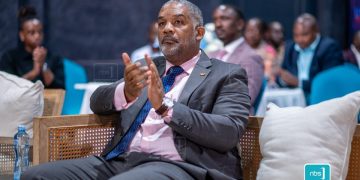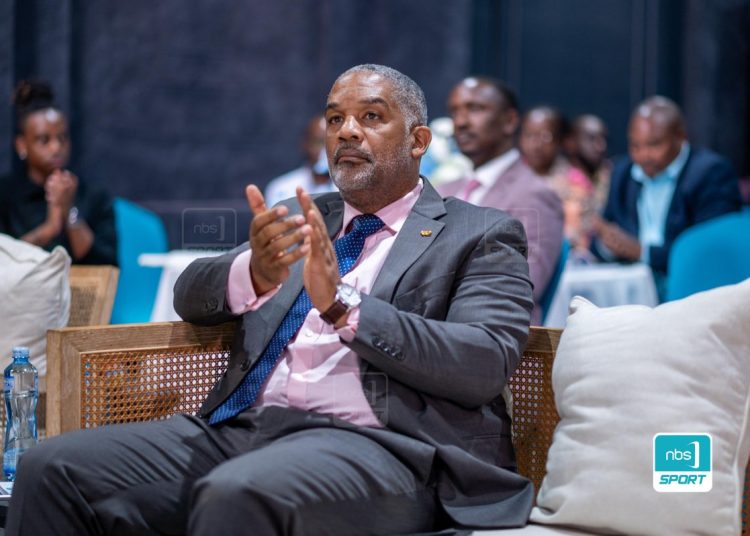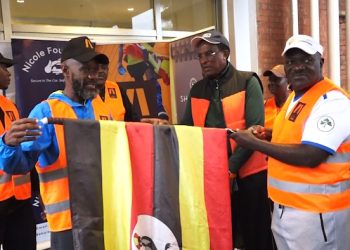The second day of the State of Ugandan Sport Symposium has closed on a fiery, thought-provoking note, as the final panel of the two-day event tackled the urgent need to build a sustainable sports ecosystem in Uganda.
Moderated by Next Media’s Head of Sports Broadcast, Andrew Kabuura, the high-level session featured respected voices in the sector.
Rosa Malango (Co-founder, Elite Soccer Academy), Joe Kigozi (CEO, JKA Academy), Kennedy Mutenyo (Football Administrator), and Davis Karashani (former captain, Uganda Cricket Cranes) were the panelists.
International Olympic Committee (IOC) member William Blick was the event’s special guest.
The discussions addressed funding models, grassroots investment, athlete welfare, governance, and the widening gap between potential and actual delivery in Ugandan sport.
The tone was direct, at times brutal, reflecting a shared frustration with the sector’s stagnation and the lack of urgency from those in charge.
“We need to create moments that keep fans engaged, even after the final whistle,” said Blick, who emphasized that true development goes beyond the pitch.
He underscored the power of local loyalty, referencing European football as a benchmark for how regional identity can grow fan bases and create lasting engagement.
“If you live in Merseyside, you don’t support Chelsea. You’re either a Liverpool or Everton fan. That sense of loyalty is something we need to embrace here too,” he added.
Joe Kigozi called out the reactive nature of federations and clubs that chase after sponsors without offering value.
“That’s the wrong approach,” he said. “Sponsors should come to us, but right now, we don’t have a strong enough product to offer.”
Kigozi further advocated for a separation between the Ministry of Education and the Ministry of Sports to allow for focused development.
However, Kennedy Mutenyo challenged that idea, warning that an independent sports ministry could be disastrous under the current climate.
“The day sports will have an independent ministry is the day even the little we have will die,” he said, pointing to entrenched political mismanagement.
“Sport is suffering because the wrong people are in charge. The state of Ugandan sport is poor. I give it 25%, and at this rate, the marks could fall to 10%.”
Mutenyo further lamented that many national federations are anything but national. “We have 51 associations, but how national are they when they don’t go beyond Kawempe?” he asked.
He also criticized the appointment of unqualified officials, citing KCCA FC’s leadership as an example. “You wonder if some people even know what football administration entails.”
Rosa Malango, co-founder of Elite Soccer Academy, passionately reframed the narrative around sport.
“Sports is not a hobby. It’s a career. It’s not charity, it’s a tool for national development,” she said, calling for a holistic approach that considers athlete development, education, mental health, and career transitions.
The session reinforced concerns raised earlier in the day during a panel on sponsorships, where leading brands such as MTN Uganda, Nile Breweries, Hariss International, and Plascon Uganda demanded more professionalism and better organisational structures from federations.
The consensus was that accountability, strong branding, and collaborative marketing are essential if Ugandan sport is to attract long-term investment.
As the symposium ended, it was clear that the future of Ugandan sport depends not just on funding, but on bold leadership, structural reform, and a shift in mindset.
Whether the tough conversations translate into real action remains to be seen, but the wake-up call has been delivered.





























